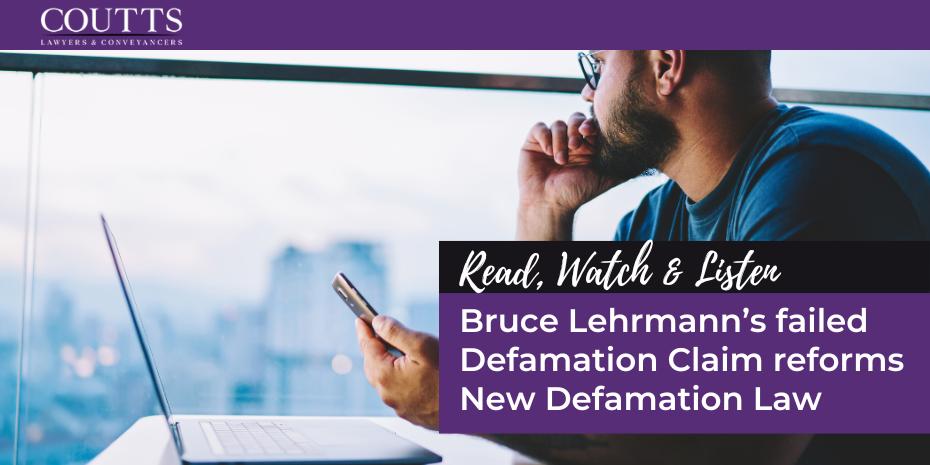KEY TAKE-OUTS:
- It is important to understand offers in dispute matters to attempt to swiftly resolve disputes.
- Making an offer may entitle you to a higher award for costs if you are successful.
- If a matter is capable of being resolved by the parties, the parties should attempt to resolve the issue before proceeding to court.
In civil litigation matters it is often the case that a number of offers are passed throughout the course of the matter. Passing offers is a good way for the parties to attempt to resolve the dispute and avoid costly and time-consuming litigation. It is in the best interests of all parties that only matters which are incapable of being resolved by the parties should proceed to litigation.
There are a number of different offers which can be made in a civil litigation matter, and they are important to consider as in most cases “costs follow the event”. This means that the unsuccessful party will usually be ordered to pay the successful parties’ costs of litigation (with a successful party generally recovering 60-70% of their incurred costs). By making an offer early on in proceedings, a party can improve their chance of recovering a higher percentage of their costs incurred if a party unreasonably rejects a genuine offer and gets a less favourable outcome at court.
Run down of litigation costs
It is important to understand the purpose of cost orders and their effects before delving into the different types. The reason offers are passed throughout litigation are to firstly; attempt to resolve the dispute early and secondly; evoke cost provisions.
Cost orders in litigation are not made to punish a losing party, however, they exist to compensate the party who is successful, particularly if they were required to commence or defend proceedings for reasons outside of their control. Further, costs orders aim to weed out frivolous and vexatious claims brought by parties by imposing a consequence on that party for bringing a claim that has no merit. The general rule is that costs follow the event, which means that costs will be awarded following final orders being made in proceedings.
Costs are generally ordered on an ordinary basis (usually 60-70% of the actual costs incurred by a successful party) or indemnity basis (usually 70-80% of the actual costs incurred).
Why make an offer in litigation?
It is important for parties involved in disputes or litigation to consider making offers for a number of reasons.
One of the most significant objectives to resolve the dispute as swiftly as possible is to avoid the intervention of the Courts. Resolving a matter before going to Court is preferred, as it saves all involved parties time and may also incur less legal fees.
Another reason to consider offers throughout a dispute matter is that the parties have more control over the settlement terms. Offers involve negotiations about a resolution that can involve creative measures that are outside of the purview of the Court’s jurisdiction.
Further, offers are important to make throughout a dispute matter as they may have a bearing on your entitlement to costs on an ordinary or indemnity basis. For example, if a successful party has made a genuine, reasonable offer to resolve a matter, and that offer has been rejected and the unsuccessful party receive an outcome less favourable than the offer, then the successful party is entitled to costs on an ordinary basis up until the date of the offer and on an indemnity basis thereafter (generally).
What is a Calderbank Offer?
A Calderbank offer is a type of offer that can be passed throughout civil litigation matters. The offer is named after the case of Calderbank v Calderbank [1975] All ER 333 where the principles of the offer were established.
A Calderbank offer is made on a “without prejudice, save as to costs basis” which means that the offer cannot be used as evidence but can be used to assess the appropriateness of costs awarded to a successful party.
Generally speaking, a Calderbank offer should:
- Establish the terms of the offer;
- Explain why the offer is a reasonable compromise. This can include details of the legal position of the parties;
- Allow a reasonable period to consider an offer. What is reasonable is dependent upon the terms of the offer and surrounding circumstances such as impending court dates;
- Specify that the offer is made in accordance with the principles of Calderbank v Calderbank [1975] All ER 333 and that if the offer is not accepted and the offeree achieves a less favourable result, then the offeror is able to claim indemnity costs using the letter.
Calderbank offers are the most common offer type used in litigation/dispute matters as they offer the most amount of flexibility i.e. they do not need to be open for a set amount of time, only time that is reasonable.
What is an Offer of Compromise?
An offer of compromise is regulated by the Uniform Civil Procedure Rules 2005 (NSW) (reg 20.6) and must:
- Be in writing;
- Identify the claim to which it relates;
- Specify the orders for the proceedings to be resolved;
- State that it is made pursuant to the Uniform Civil Procedure Rules 2005 (NSW) (reg 20.6);
- Generally have to be open for at least 28 days.
It is important that offers made are genuine in nature. For example, if there is a claim for $50,000.00 and the offeror makes an offer to accept $49,999.00 in respect to its claim, it is very unlikely that a Court would consider this offer genuine in the circumstances. In these instances, offers which are not considered to be genuine, will not trigger the ability to claim indemnity costs.
Coutts Litigation Team
Navigating a commercial/civil dispute can be difficult from a legal and strategic point of view. We encourage plaintiffs and defendants to seek legal guidance from our Commercial Litigation and Civil Disputes team at Coutts. Our team has a broad range of experience in matters of a commercial and civil nature and can assist clients in litigation and in determining what is a genuine offer and when an offer should be made.
For further information please don’t hesitate to contact:
Contact Coutts today.
This blog is merely general and non-specific information on the subject matter and is not and should not be considered or relied on as legal advice. Coutts is not responsible for any cost, expense, loss or liability whatsoever to this blog, including all or any reliance on this blog or use or application of this blog by you.



